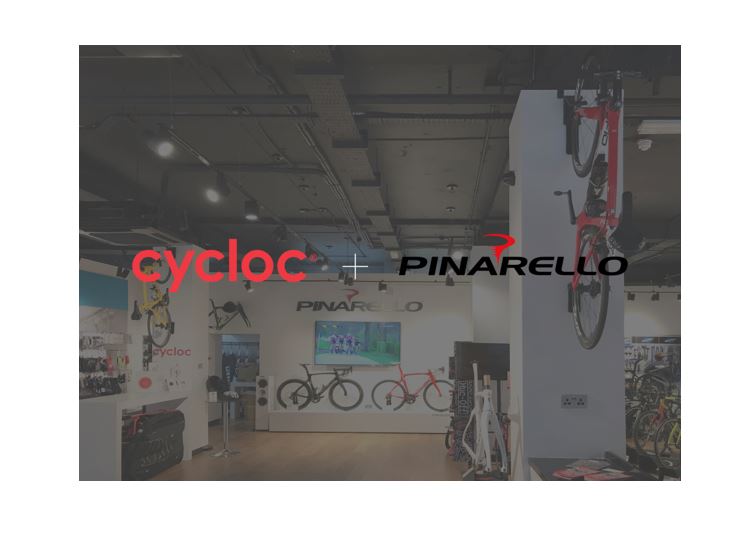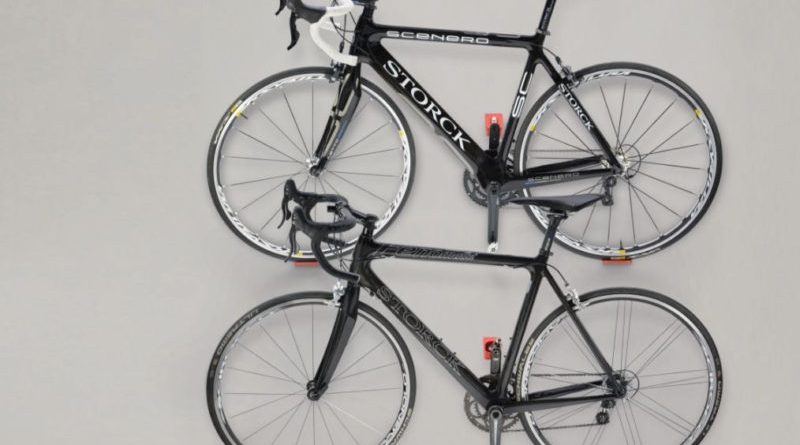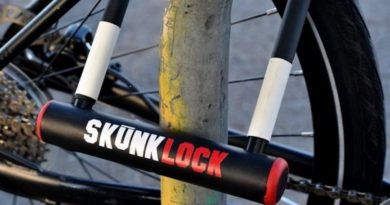Citing Brexit, “it may not be viable to invest in UK manufacture for export”, says Cycloc
Having made national press headlines in January in relation to its stance on Brexit and the associated costs to its business, Cycloc has today expanded upon the complaint, adding that it is becoming less viable to invest in its UK production given the new and enhanced hurdles it faces exporting its goods.
Wholly a UK-made product, Cycloc had a business based on a 90% export rate with European Union customers making up a significant chunk of that trade. Founder Andrew Lang previously told the Guardian that the impact of new regulations had resulted in a 25% loss of trade and a £100,000 revenue gap based on trading figures pre and prior to trade regulations changing.
Following up with CyclingIndustry.News, Lang has given further detail on the pains his business is feeling, he says as a direct result of Brexit and, somewhat counterproductively to the idea of taking back control, he says that it is now less viable than ever to continue to invest in his firm’s proudly UK-based manufacturing.
“It may not be viable to continue to invest in UK production given the hurdles of moving product out of the UK into our retail markets,” he starts, pointing to the enhanced costs of trading overseas.
He explains: “No trade deals have taken the place of the simplicity and ease of trade of what we had before. Many purported trade deals are not ratified and still pending, therefore not operational e.g. Australia and New Zealand. The one with the EU mirrors what was in place, but we now have the additional burden of administration and tax complications. Nothing has worked out to be better, we are in a significantly worse position.”
EU Warehouse closes having not met costs
At the end of 2021 Cycloc took the decision to open an EU warehouse in the Netherlands in order to reduce the costs of export by placing a bulk of stock on mainland Europe. This added over £1,000 in additional monthly overheads and, having not been able to justify the expense it closed just a year later.
“Our EU sales did not return to their pre-Brexit levels,” said Lang. “Populating this warehouse with stock required the purchase of additional product, plus the payment of import VAT on goods before they sold through. Beyond the warehousing cost there is the additional ongoing cost of monthly VAT filing in the EU, which has to be done via an intermediary service. As a UK company we cannot file directly. The cost of this service is very expensive at £450/month for filing alone irrespective of sales made. (This new VAT administration cost burden is not being discussed sufficiently).”
There was hope that the European base would slow the decline in consumer direct sales to EU customers, on which the business gained a full margin, but Lang says that EU customers have lost confidence in ordering from UK firms, fearing issues at customs and costs.
“Direct to consumer consignments are frequently stuck in customs for many weeks / months irrespective of the correct paperwork being in place. Often resulting in the goods being returned to us, or simply disappearing. The net result is a huge loss on each sale and a very disappointed customer. It is fair to say there is an indifference in processing consignments from the UK.”
Furthermore, there has been a reduction in the number of purchase orders placed by Cycloc’s distributors.
“Previously we would receive regular monthly or bimonthly orders from distributors. This has now changed to fewer orders, but these are of a larger size due to the increased administration cost associated with transfer of goods from the UK to EU, including customs clearance. The net result is difficulty in forecasting demand, increased production, predicting supply lead times and increased warehousing costs,” says Lang.
The hesitancy consumers feel has translated to the import and export trade. Potential distribution partners overseas have been described as hesitant, although Lang said that the business remains in conversation with potential partners in new global markets.
“On a positive note we are now looking to new markets where there is a need for our products. We are currently working on distribution partnerships in the USA, New Zealand, Australia, China and Malaysia. Some have been finalised and others will complete soon,” he says.

Brexit driven headwinds have forced the business to be more aggressive in adaptation, turning to collaborations as one means to keeping the brand agile. As it has done previously, Cycloc is currently establishing a number of key partnerships that will allow it to lower the cost of customer acquisition through product collaborations.
So, what does Andrew propose the UK Government should do to redress the damage Brexit policy has caused businesses like his?
He concludes: “A simplification to the taxation system is necessary, we need to design and implement a mechanism as simple to administer as the previous EC sales list. If this is not forthcoming the increased associated cost base needs to be covered by HMRC, rather than UK business.”



